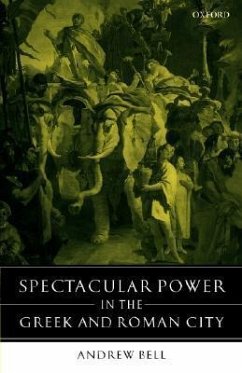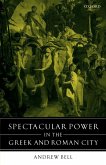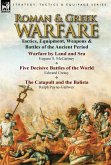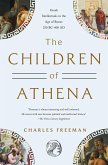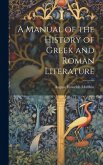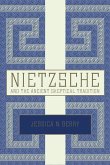In the great cities of Greece and Rome, politicians and kings sought to be seen as celebrities. They tried to appear wondrous and exciting to citizens and subjects. This study shows some of their methods and so reveals the importance of political advertisement and spectacle in societies that saw great kings but also pioneered democracy and republicanism.
Andrew Bell's analysis of the power of prestige in civic communities of the ancient world demonstrates the importance of crowds' aesthetic and emotional judgement upon leaders and their ambitious claims for immediate and lasting significance; and also finds consideration of this dynamic still to be valuable for modern citizens. An initial discussion of the fall of Ceausescu in 1989 prompts theoretical considerations about the inseparability of authority and its manifestation; and
scrutiny of Julius Caesar's gestures towards self-definition introduces the complexity of ancient political relations. The simultaneous presence of both popular affection for wondrous and kingly individuals, and also egalitarian suspicion of it, is detected in classical Athens, where an Alcibiades
needed to manoeuvre craftily to achieve obvious and ritual pre-eminence in associating himself with age-old and Homeric models of distinction. Accordingly, the arrival of Hellenistic kingliness, such as that of Demetrios Poliorcetes, upon the political stage was neither wholly innovative nor unattractive. Yet such kings quite clearly articulated a new and grandiose majesty, as can be seen in parades in Egypt and Syria. With the growth of Roman imperialism, these stylings of personal power
needed to be adapted to new realities and models, just as Romans of the later Republic increasingly found much to admire and emulate in others' spectacles. Thus the book comes back to the end of the Republic and to Cicero's struggles to maintain traditional, republican dignities in civic ceremony while a
new Roman kingliness, thoroughly attentive to spectacular politics, was dawning.
Hinweis: Dieser Artikel kann nur an eine deutsche Lieferadresse ausgeliefert werden.
Andrew Bell's analysis of the power of prestige in civic communities of the ancient world demonstrates the importance of crowds' aesthetic and emotional judgement upon leaders and their ambitious claims for immediate and lasting significance; and also finds consideration of this dynamic still to be valuable for modern citizens. An initial discussion of the fall of Ceausescu in 1989 prompts theoretical considerations about the inseparability of authority and its manifestation; and
scrutiny of Julius Caesar's gestures towards self-definition introduces the complexity of ancient political relations. The simultaneous presence of both popular affection for wondrous and kingly individuals, and also egalitarian suspicion of it, is detected in classical Athens, where an Alcibiades
needed to manoeuvre craftily to achieve obvious and ritual pre-eminence in associating himself with age-old and Homeric models of distinction. Accordingly, the arrival of Hellenistic kingliness, such as that of Demetrios Poliorcetes, upon the political stage was neither wholly innovative nor unattractive. Yet such kings quite clearly articulated a new and grandiose majesty, as can be seen in parades in Egypt and Syria. With the growth of Roman imperialism, these stylings of personal power
needed to be adapted to new realities and models, just as Romans of the later Republic increasingly found much to admire and emulate in others' spectacles. Thus the book comes back to the end of the Republic and to Cicero's struggles to maintain traditional, republican dignities in civic ceremony while a
new Roman kingliness, thoroughly attentive to spectacular politics, was dawning.
Hinweis: Dieser Artikel kann nur an eine deutsche Lieferadresse ausgeliefert werden.

